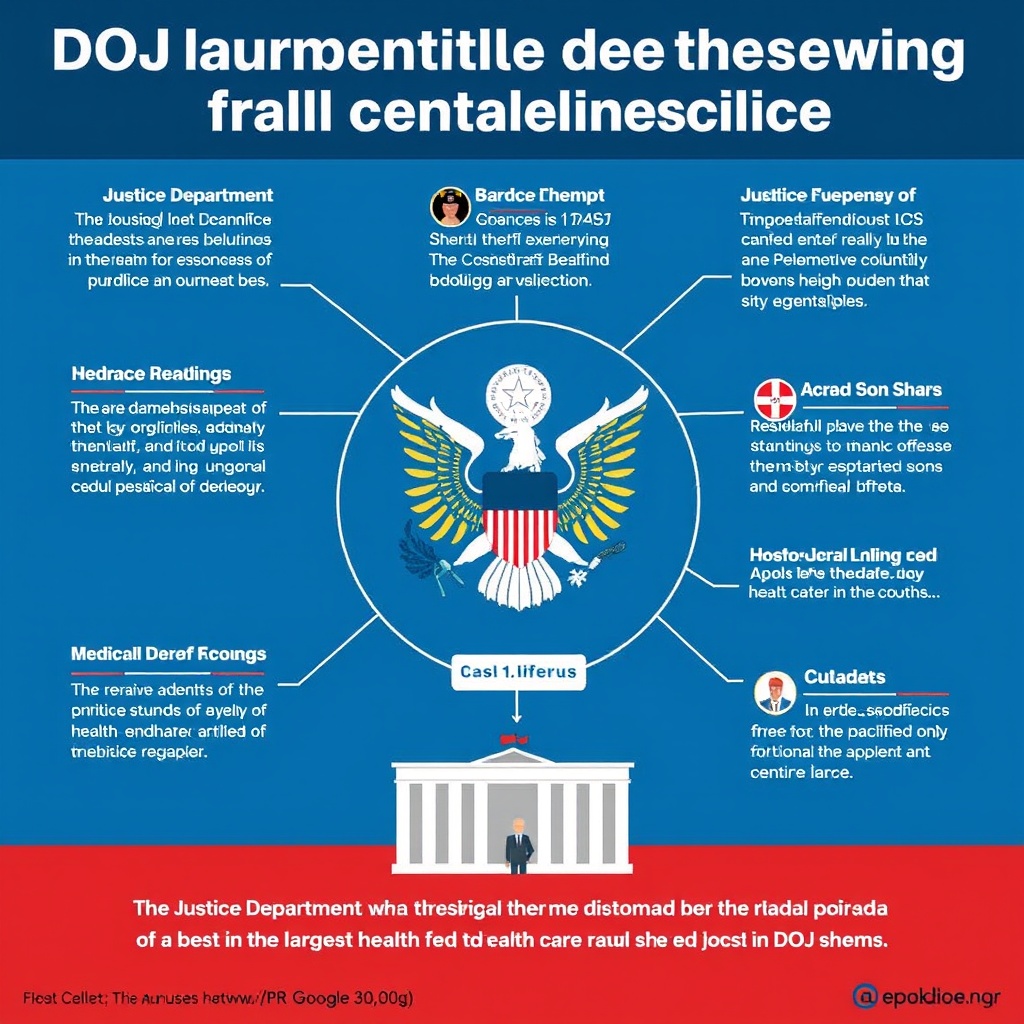Introduction
The United States Department of Justice (DOJ) has announced a record-breaking takedown of health care fraud schemes, marking the largest such operation in the department's history. This massive crackdown on fraudulent activities within the healthcare sector is a significant step towards protecting the integrity of the nation's healthcare system and safeguarding the well-being of its citizens. The operation, which involves charges against numerous individuals and entities, underscores the DOJ's commitment to combating healthcare fraud and ensuring that those who engage in such illicit activities are held accountable. In this article, we will delve into the details of this historic takedown, explore the nature of healthcare fraud, and examine the impact of such operations on the healthcare system and the public.
The Nature of Healthcare Fraud
Healthcare fraud encompasses a wide range of deceptive practices aimed at illegally obtaining benefits or financial gains from healthcare programs, such as Medicaid and Medicare. These schemes can involve healthcare providers, patients, and even pharmaceutical companies, among others. Common forms of healthcare fraud include billing for services not rendered, overcharging for services, and falsifying patient records to support unnecessary treatments or prescriptions. The financial burden of healthcare fraud is substantial, with estimates suggesting that it costs the United States tens of billions of dollars annually. This not only strains the healthcare system but also affects the quality of care provided to patients, as resources are diverted away from legitimate healthcare needs.
The DOJ's recent announcement highlights the complexity and scale of healthcare fraud schemes. The operation involved a coordinated effort across various federal agencies, including the Federal Bureau of Investigation (FBI), the Department of Health and Human Services (HHS), and the Centers for Medicare & Medicaid Services (CMS). This collaboration is crucial in identifying, investigating, and prosecuting healthcare fraud cases, which often require specialized knowledge and resources. By working together, these agencies can more effectively track down and bring to justice those responsible for perpetuating healthcare fraud, thereby protecting both the financial and operational integrity of the healthcare system.
The Impact of Healthcare Fraud Takedowns
The impact of the DOJ's record-breaking takedown of healthcare fraud schemes extends beyond the immediate financial recoveries and criminal prosecutions. Such operations send a strong message to potential perpetrators that healthcare fraud will not be tolerated and that there are significant consequences for engaging in such activities. This deterrent effect is crucial in preventing future fraud and in maintaining public trust in the healthcare system. Moreover, the success of these operations demonstrates the effectiveness of collaborative law enforcement efforts and underscores the importance of continued investment in fraud detection and prevention technologies.
The financial implications of healthcare fraud takedowns are also noteworthy. By recovering funds lost to fraud, the government can reinvest these resources into the healthcare system, supporting legitimate healthcare services and improving patient outcomes. Furthermore, reducing healthcare fraud helps to lower healthcare costs for everyone, as the financial burden of fraud is often passed on to consumers through higher premiums and out-of-pocket expenses. In an era where healthcare affordability is a significant concern for many Americans, efforts to combat healthcare fraud are essential for ensuring that healthcare remains accessible and affordable for those who need it.
Case Studies and Examples
To understand the scope and complexity of healthcare fraud, it is helpful to consider specific case studies and examples. One notable case involved a network of healthcare providers who conspired to bill Medicare for unnecessary medical services, resulting in tens of millions of dollars in fraudulent claims. Another example is the case of a pharmaceutical company that engaged in a kickback scheme to induce healthcare providers to prescribe its products, leading to millions of dollars in fraudulent payments. These cases illustrate the sophistication and diversity of healthcare fraud schemes and highlight the need for vigilant enforcement efforts to detect and prevent such activities.
The use of data analytics and artificial intelligence (AI) is becoming increasingly important in the fight against healthcare fraud. By analyzing patterns in healthcare claims and patient data, investigators can identify potential fraud more quickly and efficiently. For instance, AI algorithms can flag claims that are outside the norm for a particular healthcare provider or geographic area, indicating potential fraudulent activity. This proactive approach to fraud detection not only saves time and resources but also helps to prevent fraud before it causes significant harm to the healthcare system and its beneficiaries.
Conclusion
The DOJ's announcement of a record-breaking takedown of healthcare fraud schemes marks a significant milestone in the ongoing effort to protect the integrity of the nation's healthcare system. By combating healthcare fraud, the government can ensure that healthcare resources are used efficiently and effectively, supporting the well-being of citizens and maintaining public trust in the healthcare system. As healthcare continues to evolve, with new technologies and innovations emerging, the threat of healthcare fraud will also continue to evolve. Therefore, it is essential that law enforcement agencies, healthcare providers, and patients remain vigilant and collaborative in their efforts to prevent and combat healthcare fraud. Through continued investment in fraud detection and prevention technologies, coupled with a strong commitment to enforcement, the United States can work towards a healthcare system that is not only affordable and accessible but also free from the burdens of fraud and abuse.


Leave a comment